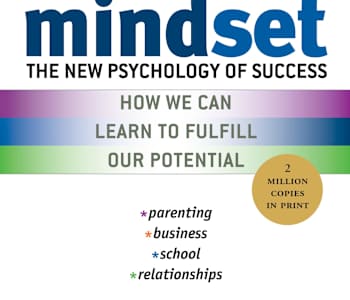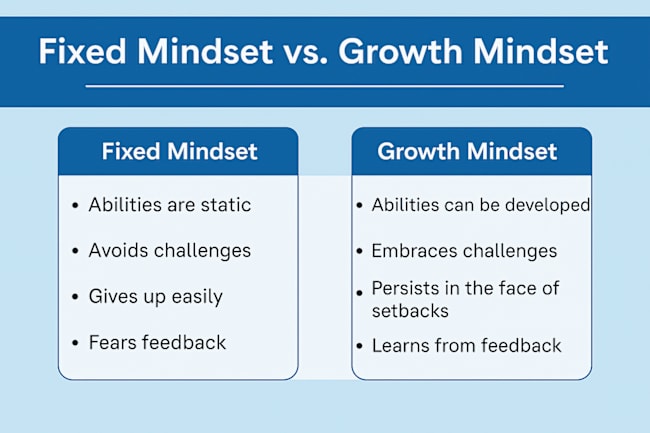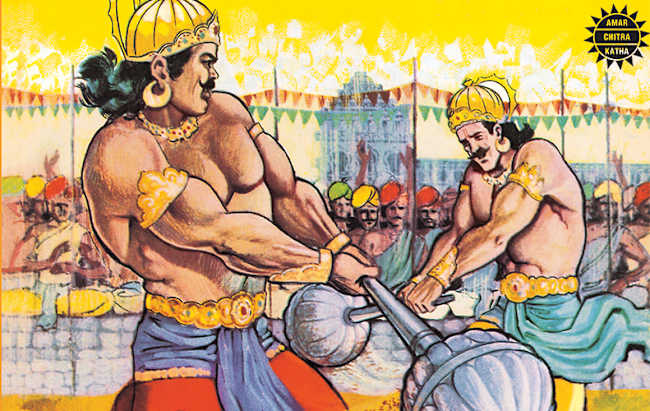🧠 Growth Mindset vs. Fixed Fate - Lessons from Duryodhana
tl;dr
Duryodhana’s behavior in the Mahabharata is a perfect example of a fixed mindset while Arjuna, the ever-curious, has a growth mindset. One wants to blame and become a victim while the other wants to learn, take initiative and responsibility—and grow.
Background
I was reading the book, Mindset by Carol Dweck. In this seminal book, Carol talks about the concept of fixed vs. growth mindset.

When reading the differences, I was reminded of a specific quote attributed to Duryodhana from the Mahabharata. Moreover, Arjuna’s behavior is clearly in line with a person who has a growth mindset. To me, it was eye-opening how the ancient story resonates so closely with a relatively new psychological finding.
Mindset - the book
In her book, Carol starts with the classical question of nature vs. nurture. She then moves on to the why of nurture and drills down into the core beliefs, behaviors, and attitudes of two kinds of people based on their mindset. According to the author,
Mindsets are beliefs—beliefs about yourself and your most basic qualities.
She then defines two types of mindset:
- Fixed Mindset: The belief that intelligence, talent, and abilities are static and unchangeable.
- Growth Mindset: The belief that abilities can be developed through dedication, hard work, and learning.
Here is a short comparison between the two kinds of mindset.

If you’d like to dig in a bit more, please watch this excellent video by the author.
Mahabharata
In the great work of the Mahabharata, there is a stark contrast between the behavior of Duryodhana and Arjuna. Both characters desire to win; to rule over a vast kingdom and achieve the status of the greatest warrior. Both try to win over Lord Krishna as well. However, the Lord ultimately teaches the Gita to Arjuna.
Philosophers and thinkers have wondered why Lord Krishna did not try to warn and educate Duryodhana about the perils of war. In reality, Lord Krishna did try to warn and educate Duryodhana about the perils of war. However, Duryodhana ignores him, scoffs at the warnings, and proceeds on the path to destruction. Was it because he was stupid?
Duryodhana’s Predicament

Duryodhana is not a stupid person. He is able to strategize, win over allies, and assemble vast armies. So what made him blind to the path that he chose? In a stunning shloka, he clearly articulates the reason for his behavior.
जानामि धर्मं न च मे प्रवृत्तिर्जानाम्यधर्मं न च मे निवृत्तिः।
केनापि देवेन हृदि स्थितेन यथा नियुक्तोऽस्मि तथा करोमि।।
(Source: Paandava Gita)
Breaking the compound words, the shloka reads as follows:
जानामि धर्मं न च मे प्रवृत्तिः
जानामि अधर्मं न च मे निवृत्तिः ||
केनापि देवेन हृदि स्थितेन
यथा नियुक्तः अस्मि तथा करोमि ||
It is translated as:
I know what is right, but I have no inclination to do it; I know what is wrong, but I cannot refrain from it. Some force seated in my heart compels me to act as I do.
Looking at the statement, Duryodhana is exemplifying the behavior of a fixed mindset person. He is:
- refraining from taking ownership/control
- blaming some mysterious force that is driving him to adharma
- not even trying to do the right thing
Arjuna’s Contrast
There are multiple instances where Arjuna displays an ability to learn. However, the most interesting one for me is this verse:
कार्पण्यदोषोपहतस्वभाव: पृच्छामि त्वां धर्मसम्मूढचेता: |
यच्छ्रेय: स्यान्निश्चितं ब्रूहि तन्मे शिष्यस्तेऽहं शाधि मां त्वां प्रपन्नम् || 7||
The translation is as follows:
I am confused about my duty, and am besieged with anxiety and faintheartedness. I am Your disciple, and am surrendered to You. Please instruct me for certain what is best for me.
Source: https://www.holy-bhagavad-gita.org/chapter/2/verse/7/
In this, Arjuna declares he is confused and needs help. He declares that he has faith in Lord Krishna and is ready to accept guidance. Literally, he wants to develop each point from the growth mindset: he needs to face challenges, needs feedback on how to proceed, and wants to develop himself as a better person.
श्रद्धा / Faith
In the Indian system of teaching, any student is expected to display at least two qualities:
- Readiness to learn
- A sense of श्रद्धा (shraddha) or faith. This is faith that the teacher knows the subject matter and that the student can actually learn from him/her.
It is important to clarify that this is faith and not blind faith. Translated to practical terms, it means the following: even if you want to be the next greatest scientist, you have to learn the concepts with faith that they are mostly correct. Only after mastering them can you challenge the rules and even break new ground.
Closing Thoughts
If you notice the Gita, Lord Krishna does not begin his teaching until Arjuna declares his readiness. Only after this verse do the real philosophical teachings begin. To me, this was a fascinating discovery. The concept of mindset is so vividly illustrated on the grandest scale possible in the greatest spiritual work of Sanatana Dharma.
Moral: Show respect to the position of a guru (teacher), have shraddha (faith) in the subject matter to master anything. Having achieved it, you can then respectfully challenge show your way of thinking.
